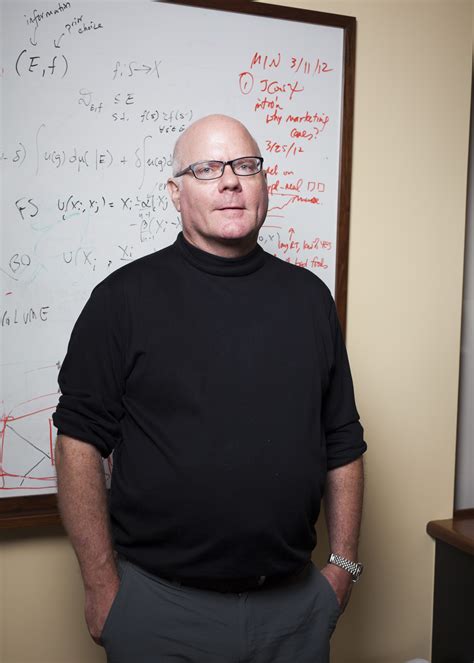A Quote by Carl Zimmer
About 1.2% of the human genome is made up of genes, things that encode for proteins, the stuff that we consider us. There is about 8.3% that's a virus. In other words we're probably about seven times more virus than we are human genes, which is kind of a weird way to thinking about yourself.
Related Quotes
Genes are effectively one-dimensional. If you write down the sequence of A, C, G and T, that's kind of what you need to know about that gene. But proteins are three-dimensional. They have to be because we are three-dimensional, and we're made of those proteins. Otherwise we'd all sort of be linear, unimaginably weird creatures.
Human beings are ultimately nothing but carriers-passageways- for genes. They ride us into the ground like racehorses from generation to generation. Genes don't think about what constitutes good or evil. They don't care whether we are happy or unhappy. We're just means to an end for them. The only thing they think about is what is most efficient for them.
Recently, results of the Human Genome Project have shattered one of Science's fundamental core beliefs, the concept of genetic determinism. We have been led to believe that our genes determine the character of our lives, yet new research surprisingly reveals that it is the character of our lives that controls our genes. Rather than being victims of our heredity, we are actually masters of our genome.
A DNA sequence for the genome of bacteriophage ?X174 of approximately 5,375 nucleotides has been determined using the rapid and simple 'plus and minus' method. The sequence identifies many of the features responsible for the production of the proteins of the nine known genes of the organism, including initiation and termination sites for the proteins and RNAs. Two pairs of genes are coded by the same region of DNA using different reading frames.
It's a very complex network of genes making products which go into the nucleus and turn on other genes. And, in fact, you find a continuing network of processes going on in a very complex way by which genes are subject to these continual adjustments, as you might say - the computer programmer deciding which genes ultimately will work.
With regard to the alternatives, we already have them. The cellular and genetic lines of research in humans are the most promising. AIDS is caused by a virus, so it makes sense to study the virus, not chimpanzees. We have learned virtually nothing about AIDS from the chimpanzee. Every major advance in AIDS research ... has come from human studies.
Charles Darwin and I and you broke off from the family tree from chimpanzees about five million years ago. They're still our closest genetic kin. We share 98.8 percent of the genes. We share more genes with them than zebras do with horses. And we're also their closest cousin. They have more genetic relation to us than to gorillas.

































